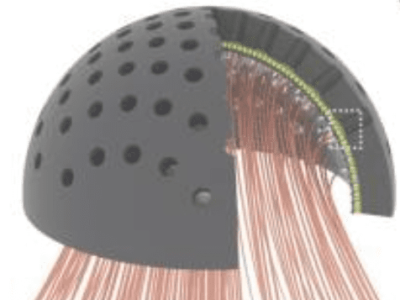
5G wireless finds place in power grid control
Field trials will take place in Ireland, Romania and Italy in collaboration with project partners next year.
The SUCCESS project aims to develop new solutions based on 5G to secure energy networks and grids with a particular focus on smart metering. The project has 16 partners from industry, academia and utilities and runs for 26 months from May 2016.
The other project, named RE-SERVE, is aimed at developing new techniques and solutions based on 5G technology to assist energy providers with balancing the voltage and frequency of the power grid to maintain a stable power supply to society, while at the same time increasing the proportion of power generated by volatile renewable energy sources such as solar and wind energy. Running for 30 months from October 2016, 11 partners from industry, academia and utilities,
Electrical Supply Board Networks (ESB Networks) in Ireland is a key partner across both projects and will implement trials in the resulting solutions from the projects in their home market. “Smart energy networks are key to successfully integrating high levels of distributed renewable energy, electric heating and electric transport, and thereby help to deliver a decarbonized future,” said Marguerite Sayers, Managing Director, ESB Networks.
“Advances in smart networks can only be made through pioneering thought leadership and the adoption of next generation technologies. Through this collaboration, ESB is engaging with Ericsson to develop and trial new technologies and standards which will advance the long-term sustainability of the energy industry. Both SUCCESS and RE-SERVE are pioneering projects which will help ensure the security and resilience of energy networks through the transition to decarburization.”
RE-SERVE (in the diagram above) will look at new distributed energy system concepts with multi-level control of the energy system using pan-European unified network connection codes. Near real-time control of the distributed energy network will be enabled by 5G and the performance of the new control mechanisms will be investigated through integration of energy simulations and live 5G communications. The project aims to create a pan-European multi-site simulation test-bed for real-time simulation and live test-beds.
Trials in Ireland for SUCCESS will look at the impact of electric vehicle charging on the power grid. The FINESCE Project estimates that when electric vehicles take-up reaches even 10% in the EU, the load this represents will peak in the evenings at some 38 GW. Such power levels will need to be activity managed, as if such a load was to be suddenly interrupted, equivalent to the simultaneous loss of nearly 50 gas power plants, it would destabilise the entire grid. As the penetration of EV rises above 10% the risk will increase further.
The trial will be an extension of the FINESCE electric vehicle field trial in Ireland, which already uses real time smart charging devices, to test the SUCCESS approach at multiple system levels. The trial will implement a SUCCESS security layer at the smart charging devices.
www.success-energy.eu
www.re-serve.eu
Related articles:
How to address the communications challenges of Smart Meters
LTE and 5G infrastructure to hit $32 billion by 2020
ABI Research sees growth in LPWA technologies with challenges
Modem crams early 5G technology into a chipset
IoT-based LTE water quality monitoring and contamination detection demonstrated
 If you enjoyed this article, you will like the following ones: don't miss them by subscribing to :
eeNews on Google News
If you enjoyed this article, you will like the following ones: don't miss them by subscribing to :
eeNews on Google News




